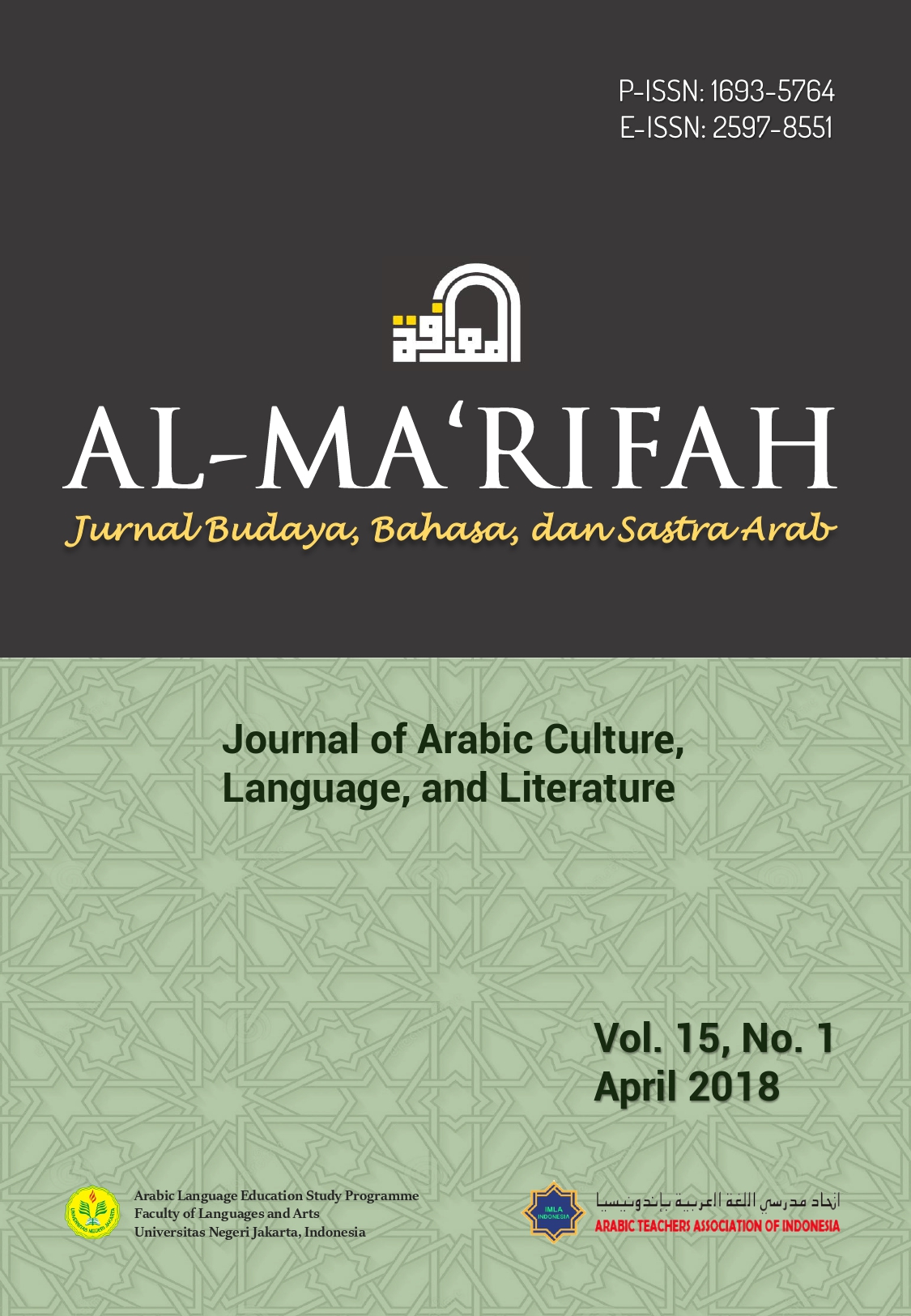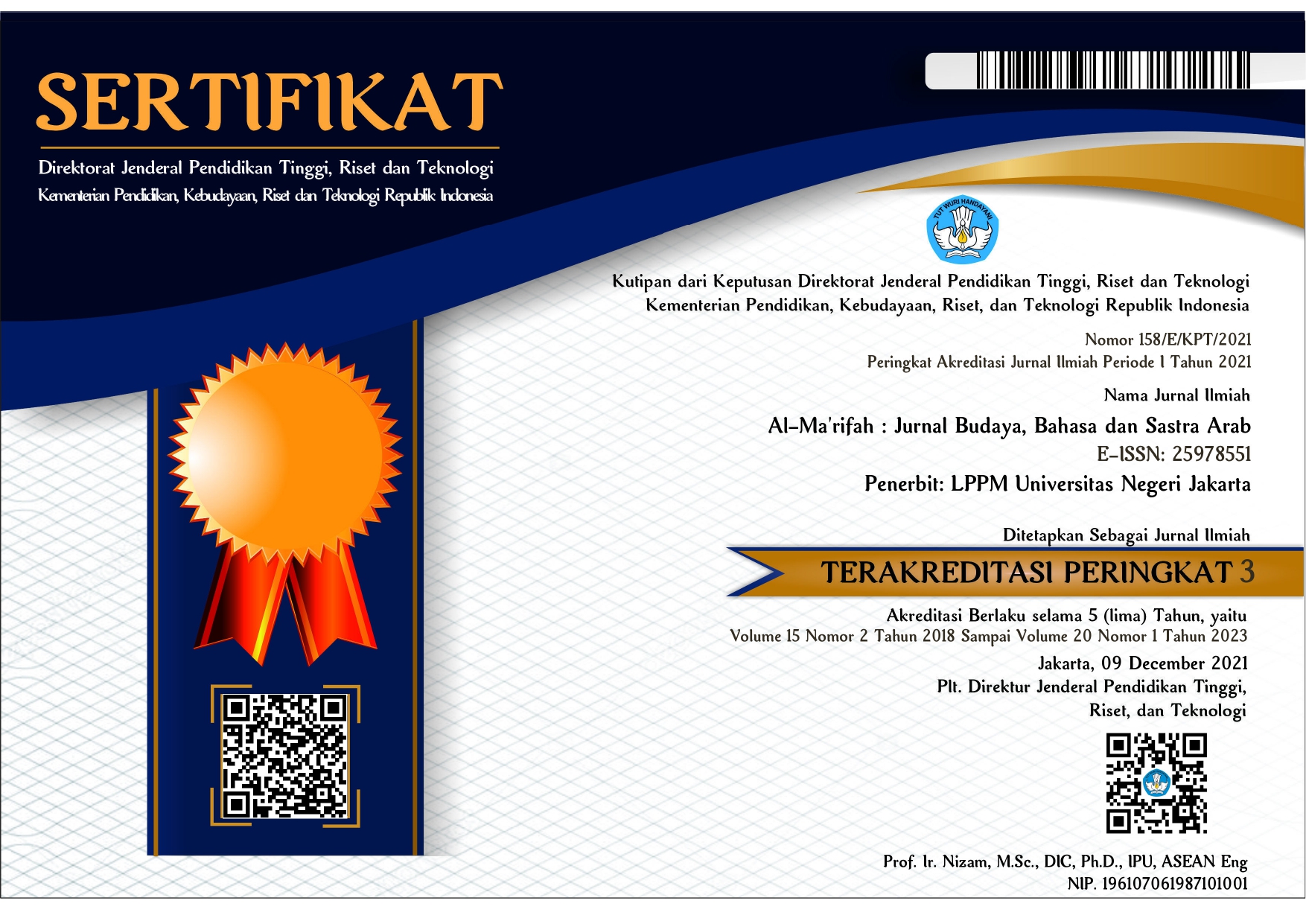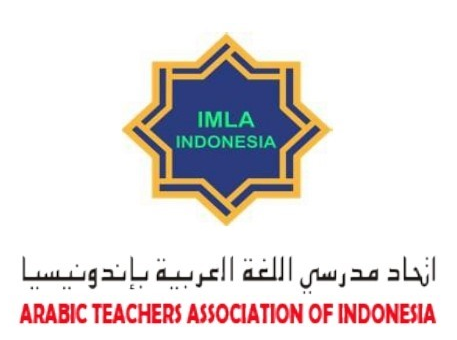al-Tadāwulīyah fī Ta‘līm al-Lughah al-‘Arabīyah li-al-Nāṭiqīna bi-Ghayrihā
DOI:
https://doi.org/10.21009/almakrifah.15.01.05Keywords:
Non-native speakers, educational institutions, deliberative proceduresAbstract
The importance of research lies on employing one of the deliberative procedures in the educational institutions, besides the Arabic language teaching institutes for non-native speakers, while examining the possibility of making it a method to raise the performance level of the teacher and the understanding for the learner, as well as creating affinity. It's also seek to frame the argument of example with educational and communicational standards and strategies. In addition, it aims to invest on the methods of discourse analysis, especially the ones concerning with persuasion in the place of teaching the language to non-speakers. Whereas the problem is reflected in this question: it has been known that the argument of example with education is unambiguous, and closer to knowledge between speakers in one language and on different communicational levels -including the educational institutions -does it give the same value when applied in the teaching of language to non-natives? What are the modern educational strategies that are dealing with it? Thusly, how it can achieve the so-called aristotelian industrial arguments conversant with the communication poles? However, the descriptive approach was adopted. It was resulted that this procedure is flexible and is able to accommodate modern educational strategies and to adapt them to an educational pattern that serves a particular group.











